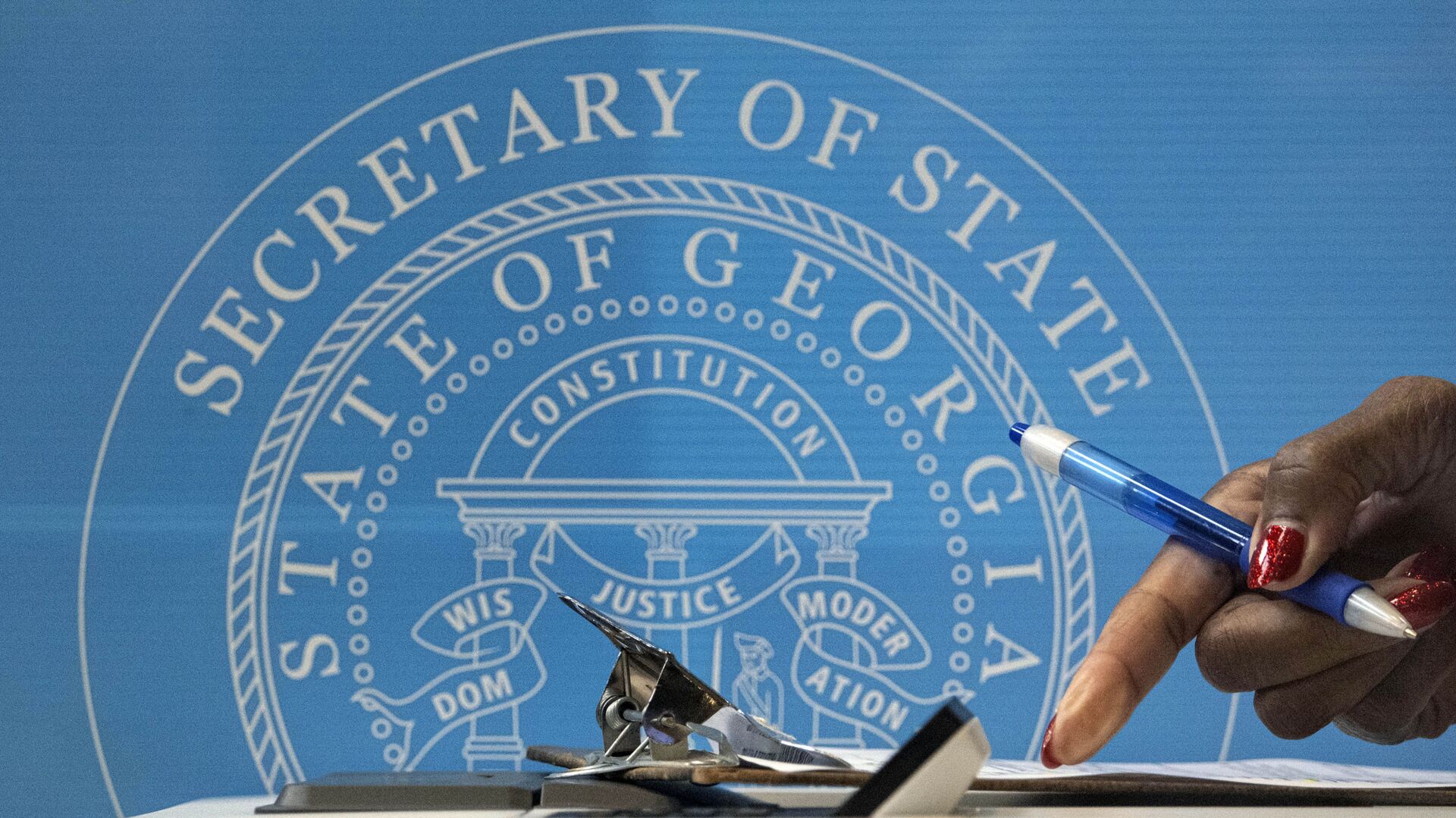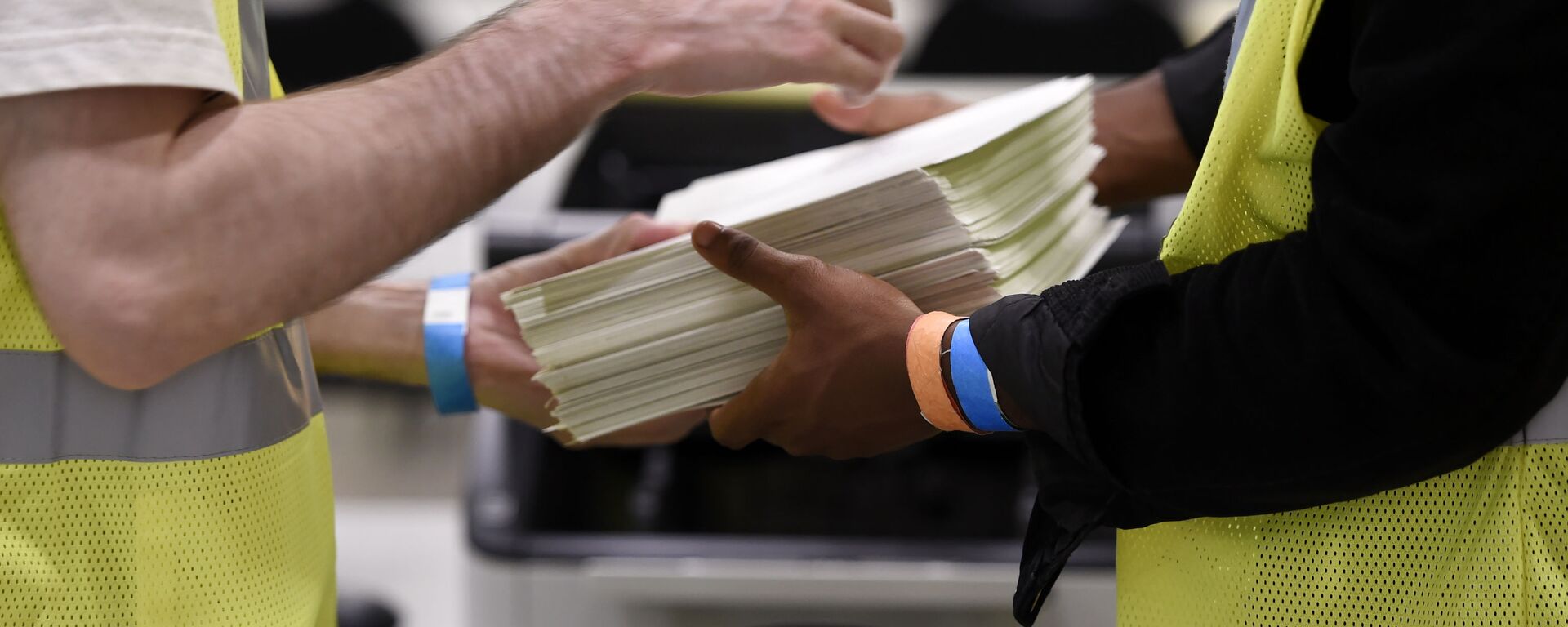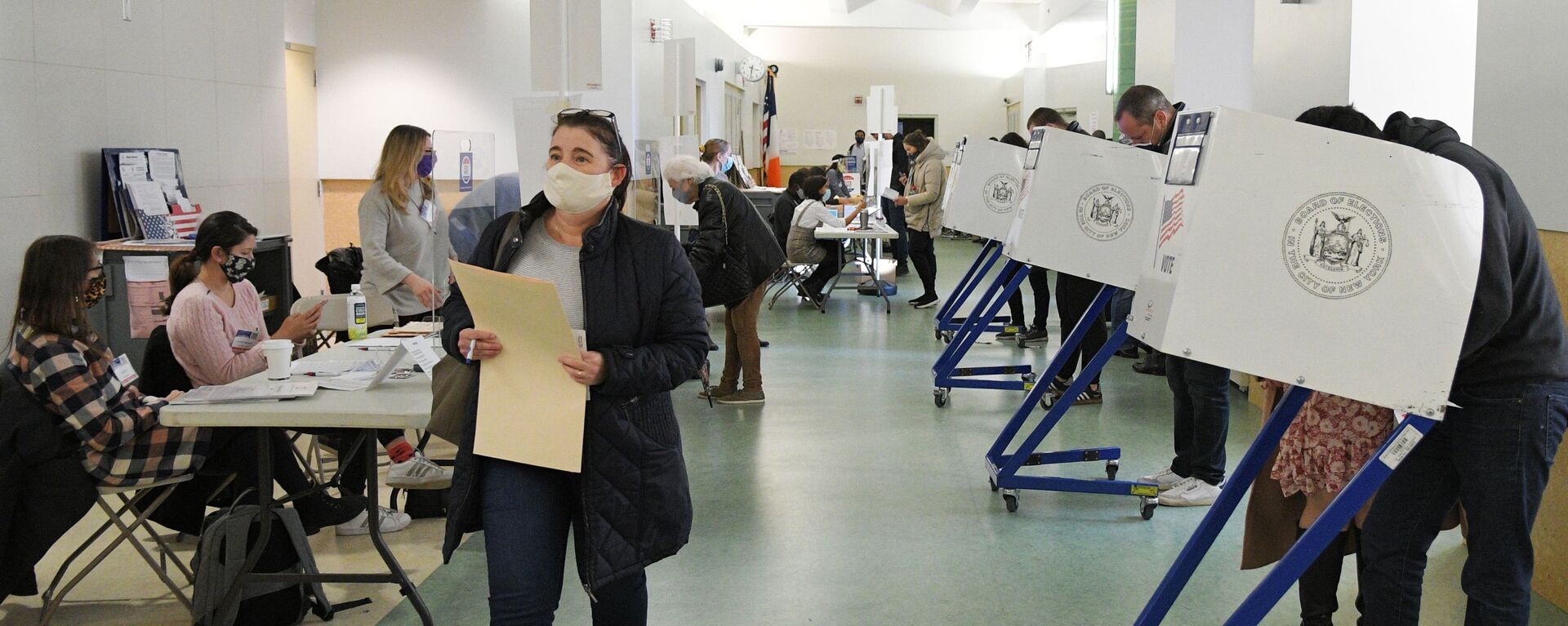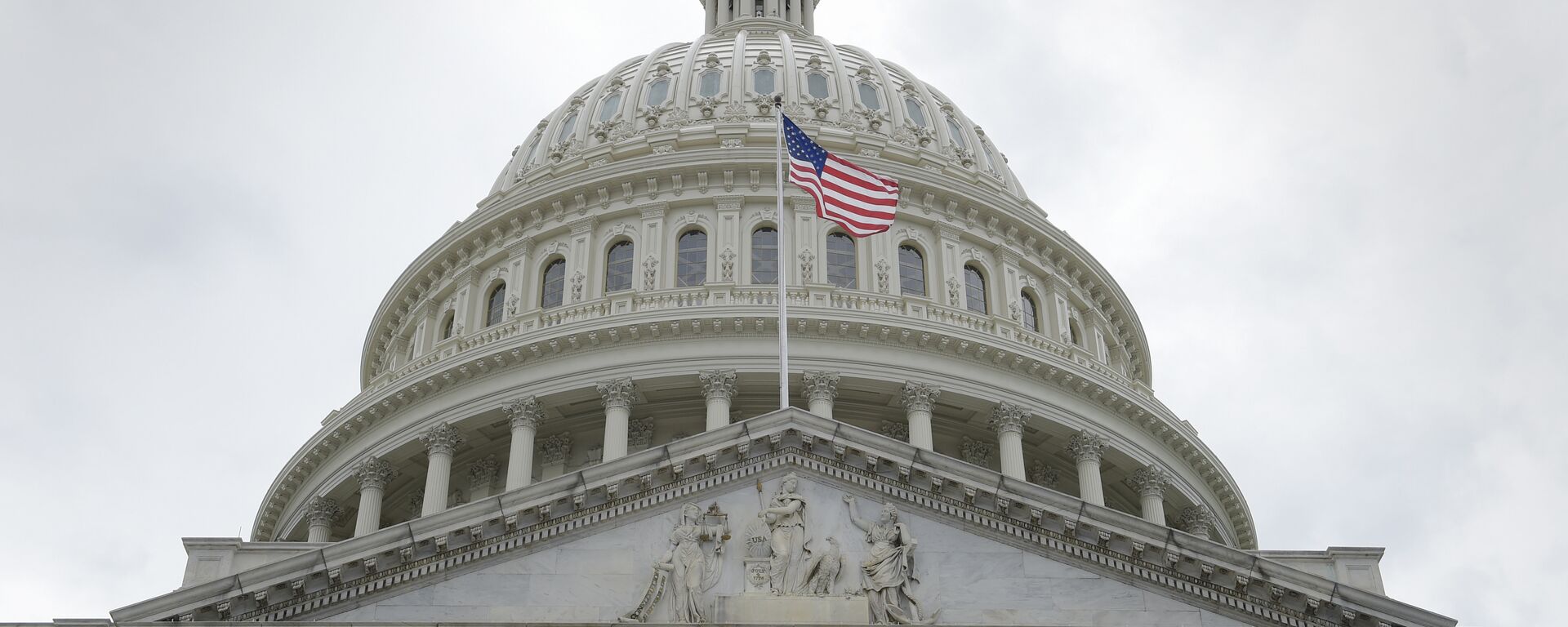Election Watchdog Says Over 17K 2020 Ballot Images Destroyed in Georgia Making Audits Impossible

© AP Photo / Ben Gray
Subscribe
Seventy-four counties in Georgia have failed to produce original images of more than 17,000 ballots from the November 2020 election, according to VoterGA, a not-for-profit election monitoring organisation. Last year Joe Biden won the state by a razor-thin margin of 0.23 percent or 11,779 votes.
Of 74 counties surveyed by the VoterGA team, 56 counties admitted that most or all of the images created automatically by the Dominion voting system to tabulate results have been destroyed, the entity's press release says, explaining that the watchdog's volunteers made the decision by submitting Open Records Requests (ORR) for the images to each county.
The development has piqued the watchdog's interest since federal law USC 52 20701 and the Georgia Election Code require election documents to be kept respectively for 22 or 24 months. These documents are generally considered to include electronic ones, according to VoterGA.
The not-for-profit body elaborated that usually the Dominion voting system automatically creates images for in-person voted ballots on compact flash memory cards. When it comes to mail-in ballots, the system automatically creates images for them on memory flash drives. After that, the cards or drives are manually uploaded to the country's Election Management Server (EMS). Some counties also use high-speed scanners to transfer ballot images automatically to the EMS to speed the process up.
56 Counties Have No Original Images, 18 Counties Largely Ignored Requests
At least 28 counties told VoterGA volunteers that they had no original images and 22 of those counties only had recount images that some claimed are the same as originals. The election monitoring watchdog argues that the lack of original images makes audits in the counties impossible, since "recount images don’t have original timestamps" and don’t have "original metadata that shows how votes were initially interpreted". In addition, recount images can be changed by tampering with scans which also make them invalid for an election audit, argues the entity.
74 Georgia Counties Can’t Produce Original 2020 Election Ballot Images https://t.co/KMFQUmr6jr
— Garland Favorito (@VoterGa) November 10, 2021
VoterGA also received emails from another 28 counties which admitted that they do not have a complete set of original images. "Various counties were missing all in-person voting images, all absentee images, all Election Day images or a substantial portion of one or more of those groups," the press release highlights.
Yet another 18 counties simply did not comply with the watchdog's repeated Open Records Requests (ORR) by either not responding or requiring fees of up to $1,700 for images that most counties provide for roughly between $25 and $50. Six of those counties claimed to have sent images to the VoterGA team via email, but the entity has not received them yet.
The watchdog revealed earlier this week that it has written confirmation from former State Election Director Chris Harvey from Georgia that permits erasing in-person ballot images from the memory cards.
BREAKING! GEORGIA!🚨@VoterGa announced that 74 of GA’s 159 counties cannot produce original ballot images for Nov 2020 election, violating State & Federal laws. An email from the State Election Director instructed election officials to overwrite the memory cards. @RealAmVoice pic.twitter.com/GXQkVgjtyc
— Heather Mullins - Real America’s Voice (RAV-TV) (@TalkMullins) November 9, 2021
"We desperately need a multi-county audit of the 2020 election to resolve these serious problems before 2022," stated VoterGA co-founder Garland Favorito criticising Georgia's authorities for what appear to be glaring violations of both state and federal laws.
Georgia Voters Struggling to Conduct New Independent Audit
Last month, Brian Amero, a judge at Henry County superior court, dismissed a lawsuit filed by lead plaintiff Favorito of VoterGA, who sought to inspect 147,000 absentee ballots in the populous Fulton County on the grounds of potential fraud in the 2020 presidential election.
The lawsuit stemmed from sworn statements by GOP election auditors who suggested that during the November 2020 audit in the county there were large numbers of "pristine" absentee ballots which appeared to be marked by machine rather than by hand. They also claimed that some absentee ballots did not have creases although usually they are folded to be put into an envelope.
However, the judge ruled that the plaintiffs lacked standing to bring the lawsuit "regardless of the veracity of these allegations".
Earlier, in July, the election monitoring firm found that at least 36 batches of mail-in ballots containing 4,255 votes were redundantly reported in the Fulton County audit results for the 3 November election. This included 3,400 extra votes for then-Democrat presidential candidate Joe Biden, 865 extra votes for Donald Trump and 43 extra votes for Jo Jorgensen, according to VoterGA.
The 2020 election continues to trigger controversies which appear to grow ahead of the crucial 2022 midterm vote which may potentially see the Democrat Party losing control over one or even both chambers in the US Congress.
Although Georgia voters still struggle to carry out a full-scale audit of the state's election results, Arizona GOP's independent contractors finished a forensic audit of the Maricopa County 2020 election in September 2021, finding a set of glaring anomalies. After the release of the audit, Arizona's Attorney General, the Republican Mark Brnovich, requested documents from both the state senate and Maricopa County officials, stressing that the findings "raised some serious questions regarding the 2020 election". The investigation continues.




